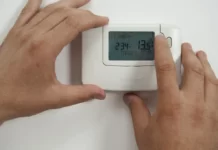The water heater in your home has a huge part to play in your regular daily life. Everything from simple tasks to a hot shower following a difficult day relies upon it. That is the reason you need to buy a model that will not cause inconveniences for a longer period of time.
Purchasing a new water heater is not something you do very frequently, so if it is an ideal opportunity to replace your water heater, you need to do it right. If you are looking for another water heater for your home or office, consider these five elements before you figure out which is the best water heater brand in the market.
Follow these elements to consider while purchasing a water heater:
1. Size And Capacity
The overall warm water usage in your household would decide the total capacity you need in your water heater. You need to ensure that the water heater you need to purchase is not too enormous or excessively little for the accessible space in your home. If you need a standard-size water heater, however, you simply do not have the space needed for it, go for a small water heater as they are wider yet more limited. This way they can fit in a smaller space and at the same time fulfill your hot water needs. Another great alternative for little spaces is the tankless water heater. Another factor to consider is utilization. Does it include both the kitchen and the washroom? Or then again would you install single heaters in each area? If you live in an area with extreme winters, then you should think about buying a water heater which has a bigger capacity.
2. Utilisation Of Energy
While Installing a water heater, you should not worry about high rises in electricity bills so you will have to be careful while buying a new water heater. The utilization of energy by a water heater relies upon numerous components. The initial factor is the amount of water used. The more you will use warm water, the greater your power. Another important factor to consider is the rise in temperature levels of the cold water. Areas that are less warm would actually need more warming than a house situated in a hotter environment. Another thing you need to consider is the favorable temperature. The indoor regulator temperature is generally set at around 55 to 60° C for almost all the water heaters. A few heaters are built in a way that they have an outer control system to make a change in the setting. An important thing to keep in your mind is heat loss. It is actually that heat that is lost from the outside of the water heater because of the non-utilization of effectively warmed water.
3. Tank Quality
On the off chance that you live in an area with hard water, you should give importance to the nature of the tank and the warming component of any water heater you purchase. Hard water will be water that contains significant levels of minerals. At the point when both the tank and the component come into contact with water, the heat can cause a chemical response, which produces limescale. Less expensive water heaters are less resistant to erosion. This will decrease the heating effectiveness and the life span of the unit. People who live in hard water regions should take extra care to search for units that are made in a way that their surface will not corrode due to hard water and the overall quality of the tank is great.
4. Comparing Costs
Prior to buying a new water heater, you will likewise need to think about the costs of various types and models.
For instance, some water heaters, particularly profoundly efficient models, can be expensive to purchase and install. High-proficiency tankless heaters, specifically, can cost up to multiple times in excess of a less efficient, regular heater. Be that as it may, the expensive models are a great option as you won’t need to spend money on their maintenance every month and will be able to save some money over the long run as they will decrease your energy consumption. Likewise, they are long-lasting. So, you should always consider the advantages and disadvantages offered by a more costly model before making a decision.
5. Fuel
The variety of water heaters available is represented by their size as well as by the sort of fuel that they run on. Contingent upon the model, water heaters can work on gas, oil, liquid petroleum gas, and electricity.
Gas water heaters are normally less expensive than electric ones, but you will need to take extra precautions and check the safety measures from time to time.
Always do your own research and sometimes it will take time to clear some confusion but eventually you will make the right decision and it will be worth it!













